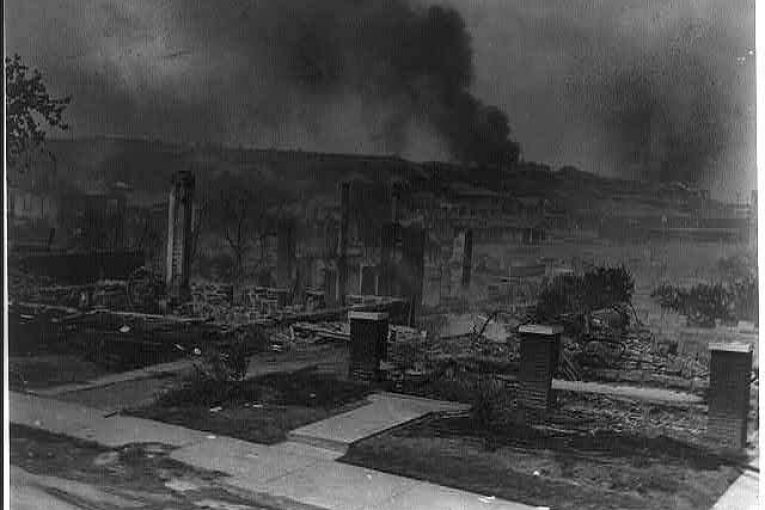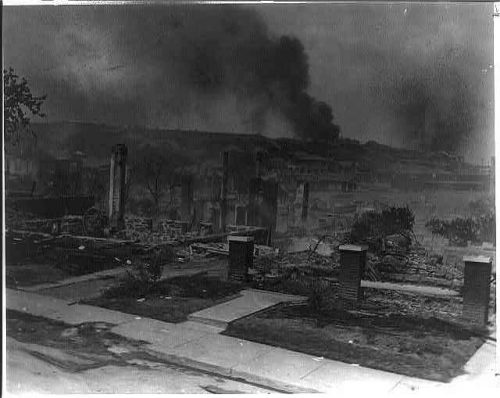

By The Vanguard Staff
TULSA, OK – The Oklahoma Supreme Court Wednesday told survivors of the 1921 Tulsa Race Massacre that decimated a Black community here their lawsuit was dismissed, “dampening the hope of advocates for racial justice that the city would make financial amends for one of the worst single acts of violence against Black people in U.S. history that left as many as 300 people dead and a once-thriving district in smoldering ruins,” according to NBC Philadelphia.
The state’s highest court upheld the decision made by a district court judge in Tulsa last year, ruling plaintiff’s grievances about the destruction of the Greenwood district, recognized as legitimate, did not fall within the scope of the state’s public nuisance statute.
“Plaintiffs do not point to any physical injury to property in Greenwood rendering it uninhabitable that could be resolved by way of injunction or other civil remedy,” the court wrote in its decision. “Today we hold that relief is not possible under any set of facts that could be established consistent with plaintiff’s allegations.”
It’s not disputed, said NBC Philadelphia, that 100 years ago, “white mobs destroyed Tulsa, Oklahoma’s Greenwood district, also known as Black Wall Street. Thousands of Black Americans lost their homes and many others were injured.”
The city of Tulsa said in a statement that it “respects the court’s decision and affirms the significance of the work the City continues to do in the North Tulsa and Greenwood communities,” adding it is “committed…to working with residents and providing resources to support” the communities.
The suit, said NBC Philly, was designed to “force the city of Tulsa and others” to pay for the “destruction of the once-thriving Black district by a white mob” that on May 31 and June 1 “looted and burned the district, which was referred to as Black Wall Street.
“As many as 300 Black Tulsans were killed, and thousands of survivors were forced for a time into internment camps overseen by the National Guard. Burned bricks and a fragment of a church basement are about all that survive today of the more than 30-block historically Black district,” said NBC.
The two survivors of the attack, Lessie Benningfield Randle and Viola Fletcher, both now well over 100 years old, sued in 2020 to gain “justice in their lifetime.” A third plaintiff, Hughes Van Ellis, died last year at age 102.
Other defendants in the case included the Tulsa Regional Chamber of Commerce, the Board of Tulsa County Commissioners, the Tulsa County Sheriff and the Oklahoma Military Department.
The lawsuit was filed under Oklahoma’s public nuisance law, and the pleadings argued the actions of the white mob continue to affect the city and is part of Tulsa’s long history of racial division and tension.
The suit noted city and insurance companies never compensated victims for their losses, and the massacre ultimately resulted in “racial and economic disparities that still exist today,” and detailed an accounting of the “property and wealth lost or stolen in the massacre, the construction of a hospital in north Tulsa and the creation of a victims compensation fund,” said NBC.
NBC Philadelphia noted, “Public nuisance claims are typically used to address local concerns like blighted homes, illegal drug-dealing or dangerous animals. Such claims were used in lawsuits that states brought against tobacco companies in the 1990s and against opioid drug makers, but many of those led to settlements rather than trials.”